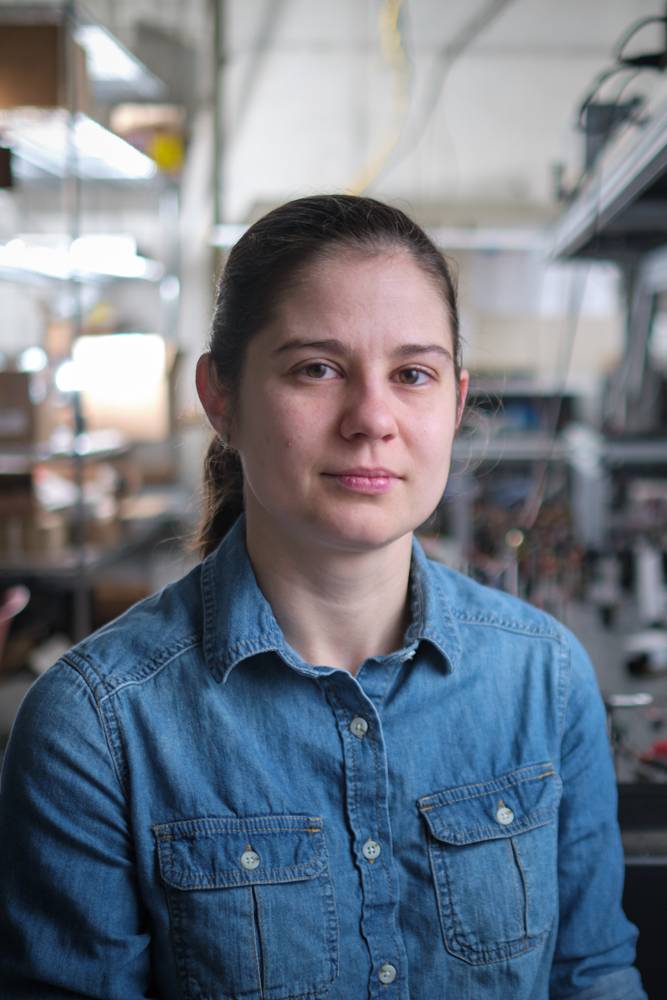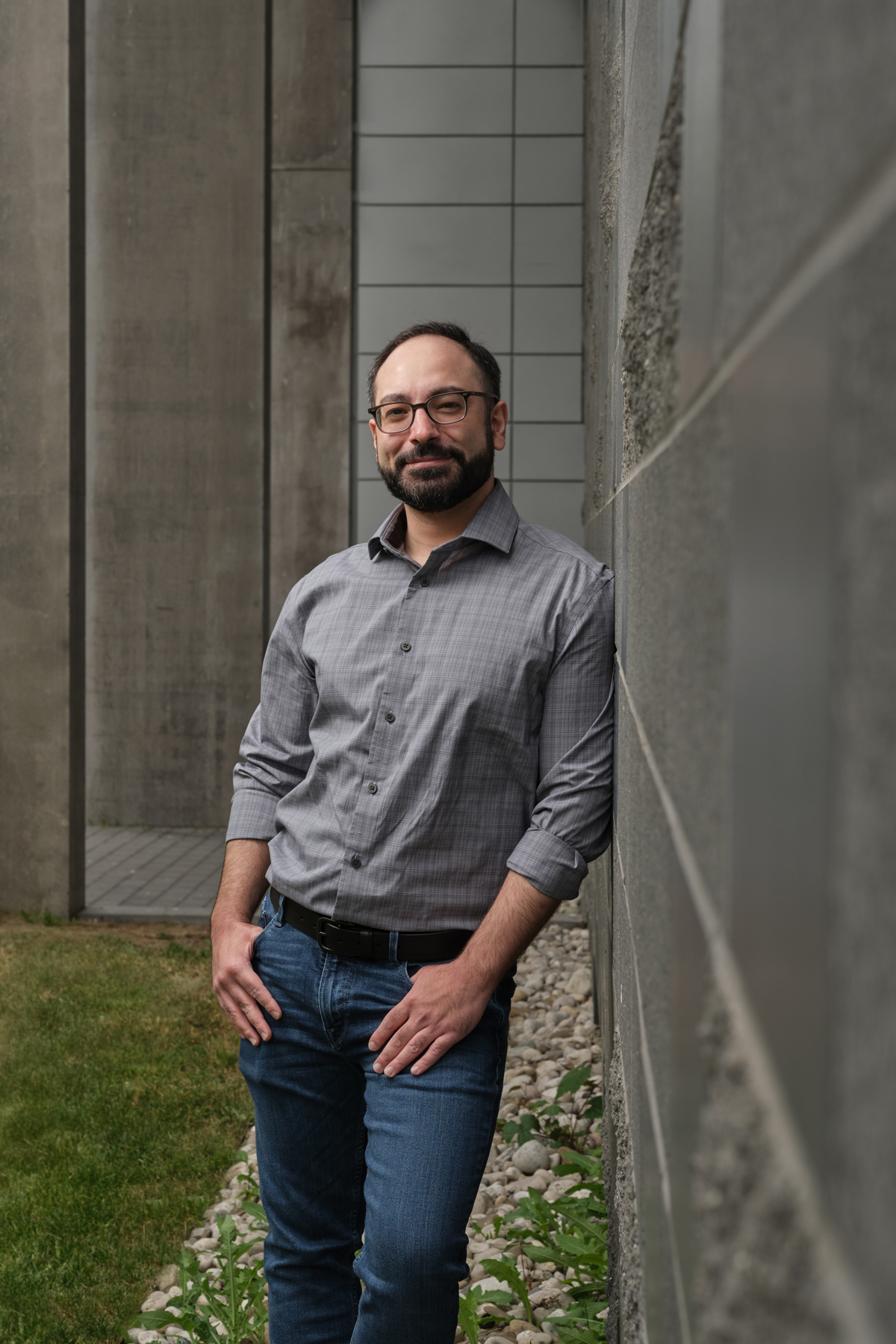QUANTUM IMPACT
COMPUTING & TECHNOLOGY

CRYSTAL SENKO Assistant Professor, Physics and Astronomy, IQC
UP AND COMING NONIDENTICAL QUBITS TAKE THE PRIZE
Crystal Senko’s research program was among the 21 projects at the University of Waterloo to receive an award from the Canadian Foundation for Innovation’s (CFI) John R. Evans Leaders Fund (JELF).
A faculty member in the Department of Physics and Astronomy and IQC, Senko received over $200,000 to continue her research in the Laboratory for Trapped Ion Quantum Computing with Nonidentical Qubits, which aims to develop new kinds of trapped ion quantum computers.
“I am honoured to have the value of our research recognized by the CFI,” said Senko. “We have ambitious goals in our lab, and any support that helps us achieve them brings us closer to exciting new developments in quantum computing.”
Funding provided through the JELF provides promising faculty members with research support, assists in recruiting and retaining outstanding researchers and helps researchers acquire tools all to enable their work in areas that are innovative, high quality and that meet international standards.
Senko was also recently awarded a Canada Research Chair in Trapped Ion Quantum Computing by the Government of Canada.


POOYA RONAGH Research Assistant Professor, Physics and Astronomy, Perimeter Institute for Theoretical Physics, IQC Director, Hardware Innovation Lab, 1QBit
QUANTUM INTELLIGENCE
The graphics processing unit (GPU) was a windfall for artificial intelligence, as the architecture turned out to be well-suited for deep learning. What if quantum computing enabled an even more advanced form of artificial intelligence (AI)?
“Machine learning depends on Big Data right now,” said Pooya Ronagh. “A deep learning program might need to see tens of thousands of pictures of cats and dogs to learn the difference. But human intelligence — even a toddler — might be able to learn the same thing with a single drawing.”
Perhaps quantum machine learning could bridge that gap.
That question has been on Ronagh’s mind as he explores the intersection of quantum computing and AI at IQC and Perimeter Institute.
Techniques from classical machine learning, a type of artificial intelligence, can improve quantum information processing, suppress errors, help researchers realize high-quality gates and more. However, it is also possible that quantum hardware could improve machine learning, or even enable a new form of artificial intelligence.
Whatever the answer may be, Ronagh likes to know he is working towards something that will have a broad impact in the long-term. And he sees collaboration between industry and academia as crucial for creating that impact.
“Lots of scientific interaction happens when you bring together industry and academia,” said Ronagh, who works to connect the Vancouver-based quantum software company where he works, 1Qbit, with the Waterloo quantum ecosystem.
“Academia explores scientific grounds of problems in a variety of domains and makes important discoveries. Industry is great at then employing large, targeted teams of people to engineer specific integrated systems and applications that make use of that research.”
It’s a synergy that Ronagh is hopeful will lead to revolutionary quantum technologies.